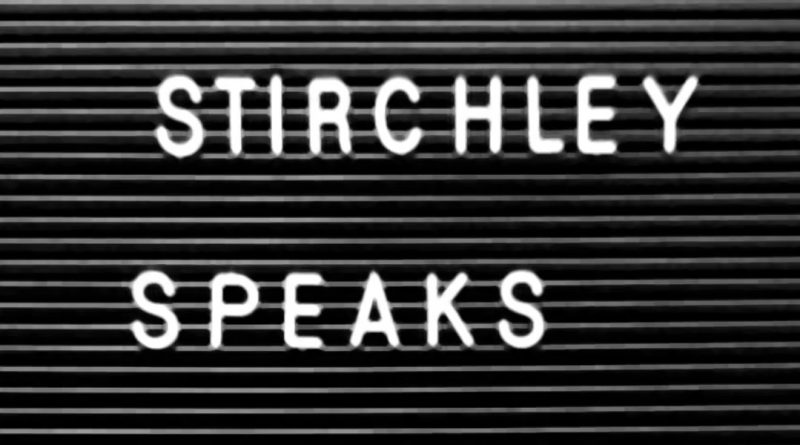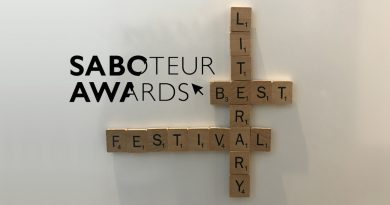New Feature! Regular Night Spotlight: Stirchley Speaks
An introduction from our West Midlands Spoken Word Editor, Hannah Ledlie:
“Regular spoken word nights are the lifeblood of the UK spoken word scene. Often providing individuals with their first introduction to spoken word, they create safe spaces for writers to perform, experiment, and learn from their peers. Anyone who attends them would agree that poetry nights are about more than just poetry. For this reason, in addition to reviewing the work of feature poets and open micers, Regular Night Spotlights will discuss regular events’ accessibility, structure, hosting, atmosphere and more. Through this ongoing project we hope to showcase the great diversity of regular spoken word nights, and to encourage the development of nights by examining them through a critical lens.
We hope to put a spotlight on regular nights across the UK, so if you would like to review your local poetry night for us, please get in touch!”
– Reviewed by Hannah Ledlie –
What Stirchley Speaks lacks in physical space it makes up for with an abundance of heart. Tucked away in the gallery room of Artefact – an artist led, community-focused arts space in South Birmingham – the monthly poetry night, which takes place on the second Wednesday, feels like a gathering of close friends. At £3 per person, or free if you’re on the open mic, Stirchley is one of the more affordable events in the region and easy to reach via public transport. Located a few minutes from Bournville train station, poets are free to sit or stand as they perform, and anyone is welcome to leave to get some air throughout the night.
Stirchley Speaks is slightly unusual in that it has two hosts, Jess Davies and Callum Bate. Sharing the responsibility of warming up the room and introducing acts, the pair bounce off each other well and their rotation keeps the event energised. Despite their in-jokes and friendly banter with the regulars, the hosts avoid straying into ‘cliqueyness’, and each month Stirchley Speaks successfully attracts new crowds of all ages.
A big part of the night’s appeal is its commitment to showcasing ‘undiscovered’ talents and launching the careers of poets newer to the scene. A common shortcoming of larger events is that they rotate the same roster of established artists, meaning audiences can quickly become familiar with their repertoires. By putting faith in new faces – or, more often, open mic regulars yet to have the opportunity to curate a full set – Stirchley’s hosts keep drawing in audiences excited to hear fresh voices.
Given Stirchley’s warm atmosphere (in summer this is description can be taken literally), it’s perhaps unsurprising that poets often feel comfortable bringing their newest and most experimental material to the night. In the July edition, Irish writer and University of Birmingham graduate, Matthew Magill, brought a set mostly comprised of other poets’ work. In his hometown, Magill told me later, attendees at open mics regularly perform famous poems which they admire. However, I’d argue that to do so as a feature at an English poetry night takes a certain courage; one runs the risk of being accused of laziness or a lack of creativity.
Fortunately, Magill quickly won over the audience by providing engaging context and reciting the pieces with flare. ‘These are all poems about sexuality and intimacy that inspired the pamphlet I’m working on, Sex by Numbers,’ he explained. Reading the King James version of ‘Song of Solomon’, the poet managed to expertly counteract the potential dryness of the piece, injecting emotion and emphasis. Following applause he joked, ‘I promise it’s not all going to be ye olde ye hath ye ye… Now for something more pop-y,’ then introduced a piece by Kerouac, Ginsberg and Cassady.
Magill’s set made one wonder why recitation is not more common at Midlands poetry nights. It gives audiences the chance to experience older works, which they may have dismissed as too archaic or ‘pagey’, being brought to life. In Magill’s case his ‘covers’ also provided the audience with a fascinating insight into his own influences and references when it came time for him to read a few self-authored pieces. These pieces were beautifully crafted, blending Biblical inspiration with a dry millennial humour.
Walk the dunes of seagrass and / green-bottle glass. Watch the / white gull ride talk of dreams / and vegan snacks.
Later, West Midlands actress and spoken word artist Luanda Yasmin performed a candid and rhythmical set, charting a journey from personal turmoil to recovery. Yasmin also covered political issues with nuance, something she also does on her growing YouTube channel. Performing a piece inspired by her experiences with racism in the arts industry, Yasmin delivered a killer closing line:
If the way that I speak / is connected to the way that I eat, / then how free is the speech, really?
Closing the evening was Zöe, a singer/songwriter. Although initially quiet and tentative, Zöe quickly came into her own, delivering gorgeous melodies with intricately internally-rhyming lyrics. Her pieces felt wandering in the best of ways, being led by their lyrics and rhymes rather than remaining confined to strict verse/chorus structures. With her soft voice and intimate performance style, Zöe reminded me of fast-growing artists Fenne Lily or Billie Marten.
Crying for joy, that is counterproductive / Oh blue-eyed boy, am I doing you justice?
Poetry and music are perfect partners, and Stirchley’s commitment to showcasing both mediums is another factor that keeps drawing in audiences. The night’s reliable structure (open mic, feature, break; open mic, feature, break; open mic, feature) also gives attendees plenty of chances to chat and get refreshments from the café. Perhaps most importantly, the structure allows the poetry to properly sink in without becoming draining. While poetry nights regularly stretch on for three hours or more, Stirchley generally finishes on time around 10pm, leaving audiences inspired and energised.
Despite its small size, Stirchley Speaks is a Birmingham institution not to be overlooked.




